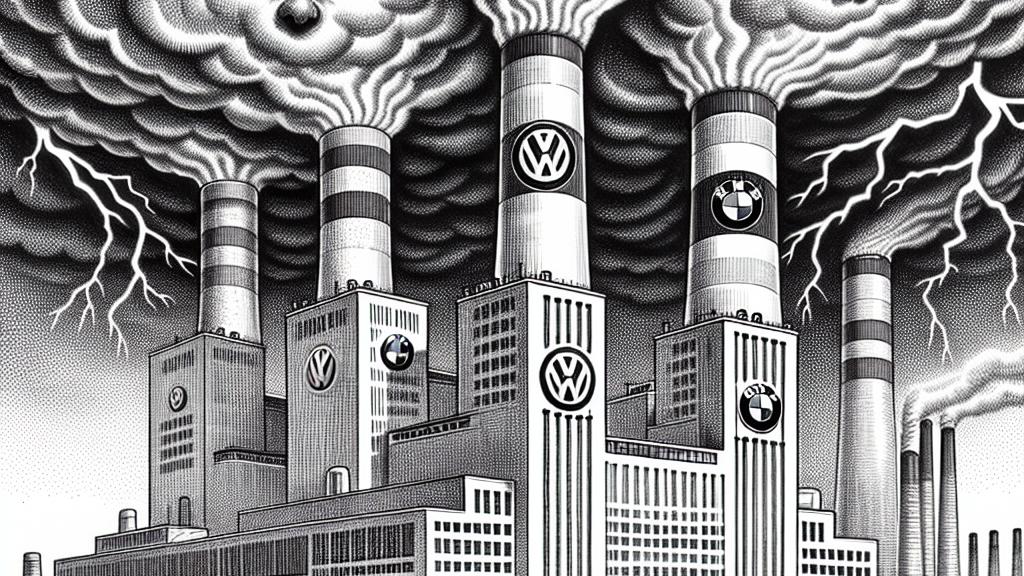How Trump's Tariffs Could Change German Car Companies
Overview
- Trump's proposed tariffs threaten German automotive giants like Volkswagen and BMW.
- The German auto industry is already struggling, making potential tariffs even more worrying.
- If implemented, these tariffs could significantly deepen the challenges faced by European car manufacturers and disrupt global markets.

Tariff Threats Looming Over German Automakers
In Germany, a sense of uncertainty looms large as iconic carmakers such as Volkswagen, BMW, and Mercedes-Benz brace themselves for possible tariffs from the incoming U.S. administration under President-elect Donald Trump. His proposed plan to transform renowned German brands into American enterprises could dramatically reshape the automotive landscape. As he emphatically stated, he envisions German companies relocating their manufacturing plants to the U.S. This ambitious agenda surfaces during a tumultuous time, when these manufacturers are already grappling with sluggish demand and alarming profit warnings, largely triggered by economic slowdowns in China—the world’s biggest vehicle market. Picture this: the giants of the auto industry facing an impending storm, raised eyebrows, and heightened tensions.
The Potential Impact of Tariffs
The ramifications of such tariffs could ripple far beyond the car manufacturers alone. Last year, Germany exported an astonishing 23 billion euros worth of automobiles to the U.S., a figure that constitutes approximately 15% of the nation’s total exports to America. This data speaks volumes! Rico Luman, a senior economist, highlights that the automotive sector is not merely an industry; it’s the very heart of German manufacturing, intrinsically linked to other vital sectors, like steel and chemicals. Therefore, if tariffs become a reality, the impact could cascade, leading to job losses and unsettled economic conditions across the board. Imagine the far-reaching consequences of increased costs and job cuts that can distress not just the companies but the entire supply chain.
Concerns About the Future
While some experts might brush off Trump's bold ambitions as empty rhetoric, the uncertainty tethered to these tariffs cannot be understated. Such fluctuations would likely exacerbate existing vulnerabilities in the automotive market. Take Volkswagen as a prime example. They are not just sitting back; the company is actively formulating strategies to tackle these looming threats, reflecting how critical understanding global trade dynamics has become. For students and those curious about economics, this scenario serves as a compelling lesson in the intricate interplay between politics and international business. It vividly illustrates how governmental actions can have profound repercussions on global production, trade, and employment opportunities—encouraging deeper contemplation on the delicate balance that exists in the trade environment.

Loading...